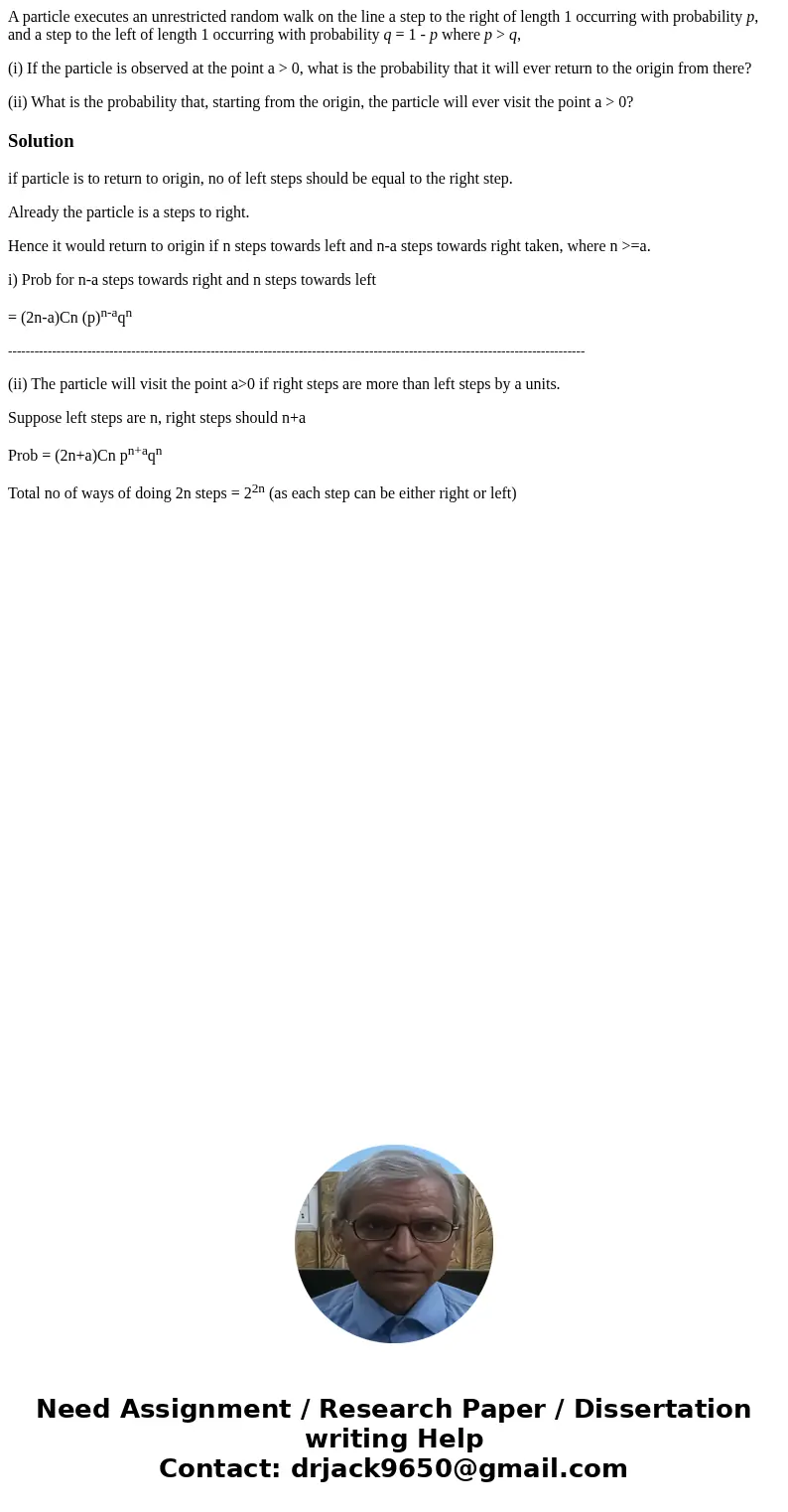A particle executes an unrestricted random walk on the line
A particle executes an unrestricted random walk on the line a step to the right of length 1 occurring with probability p, and a step to the left of length 1 occurring with probability q = 1 - p where p > q,
(i) If the particle is observed at the point a > 0, what is the probability that it will ever return to the origin from there?
(ii) What is the probability that, starting from the origin, the particle will ever visit the point a > 0?
Solution
if particle is to return to origin, no of left steps should be equal to the right step.
Already the particle is a steps to right.
Hence it would return to origin if n steps towards left and n-a steps towards right taken, where n >=a.
i) Prob for n-a steps towards right and n steps towards left
= (2n-a)Cn (p)n-aqn
-----------------------------------------------------------------------------------------------------------------------------------
(ii) The particle will visit the point a>0 if right steps are more than left steps by a units.
Suppose left steps are n, right steps should n+a
Prob = (2n+a)Cn pn+aqn
Total no of ways of doing 2n steps = 22n (as each step can be either right or left)

 Homework Sourse
Homework Sourse